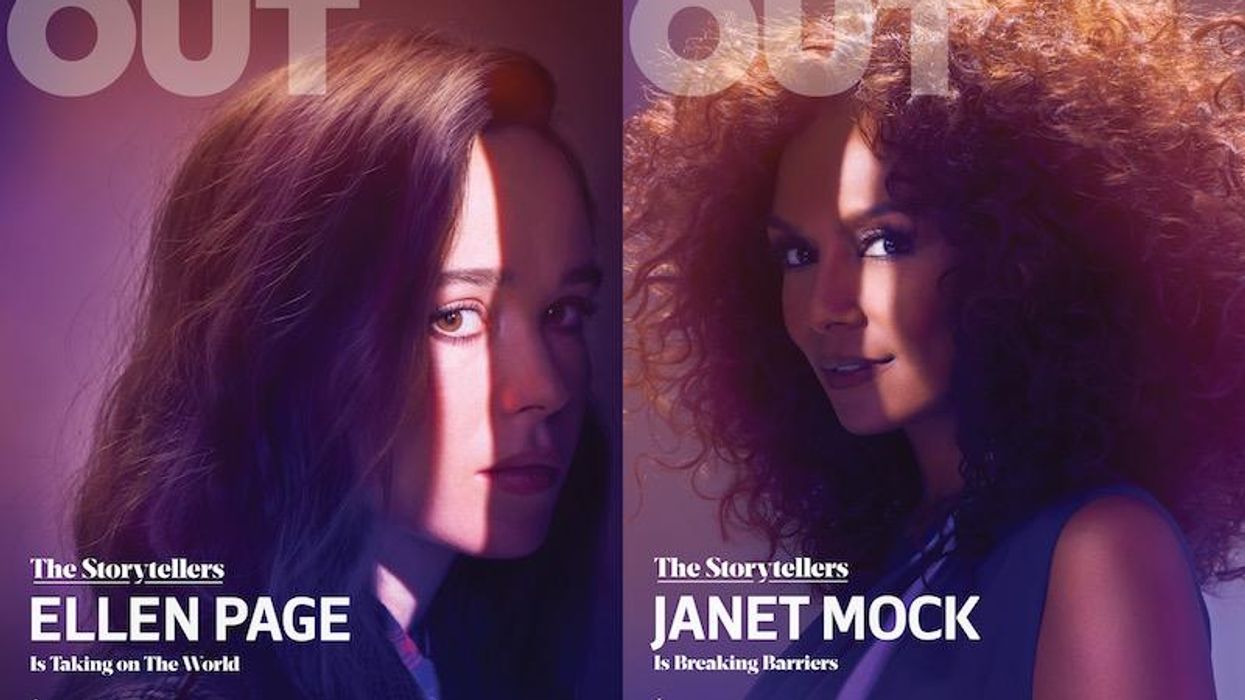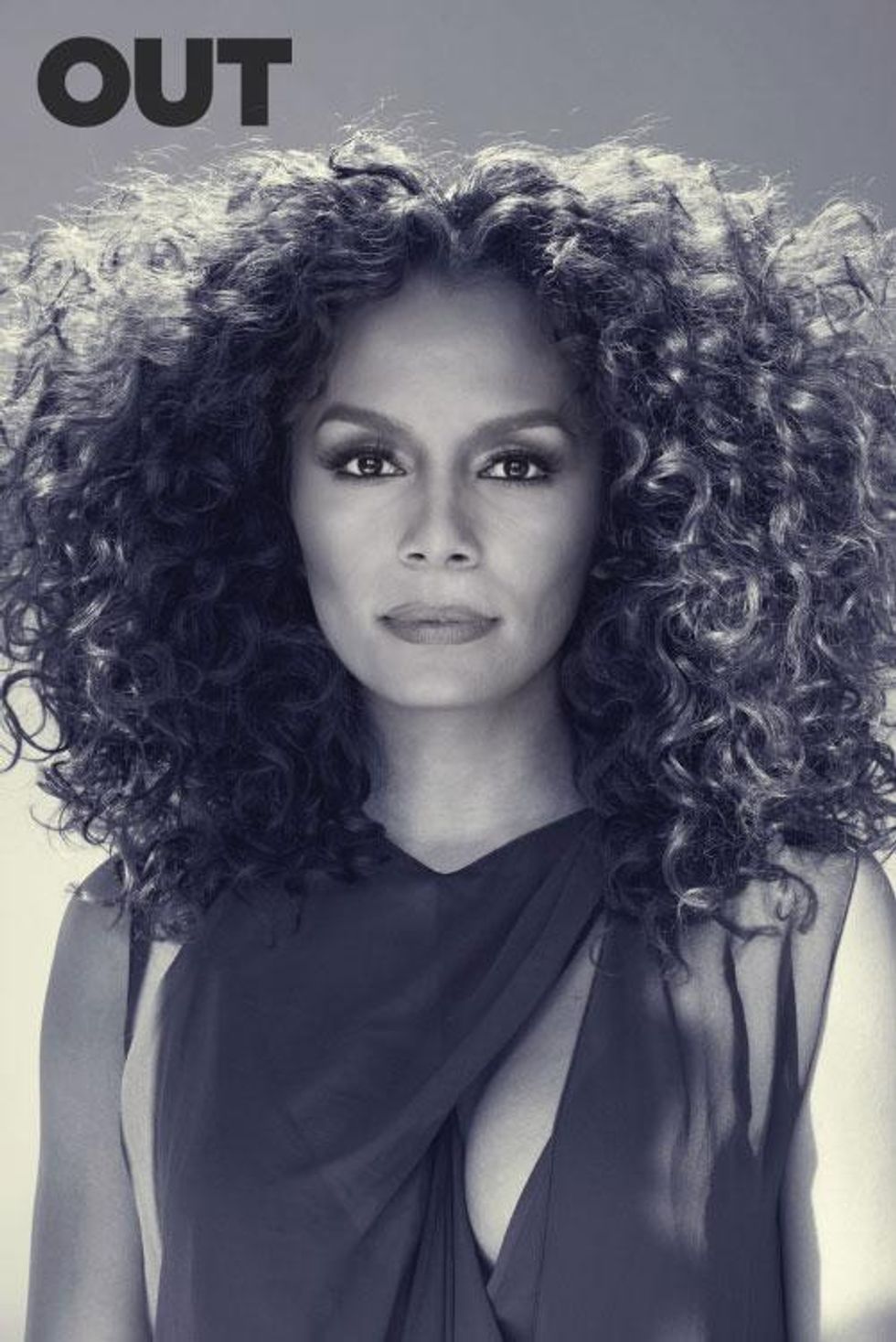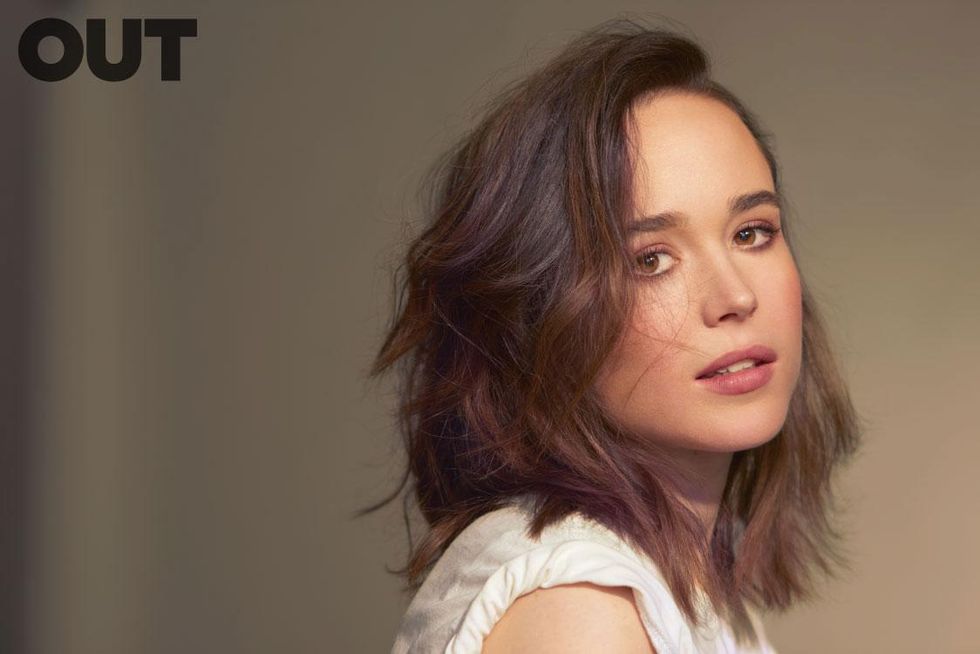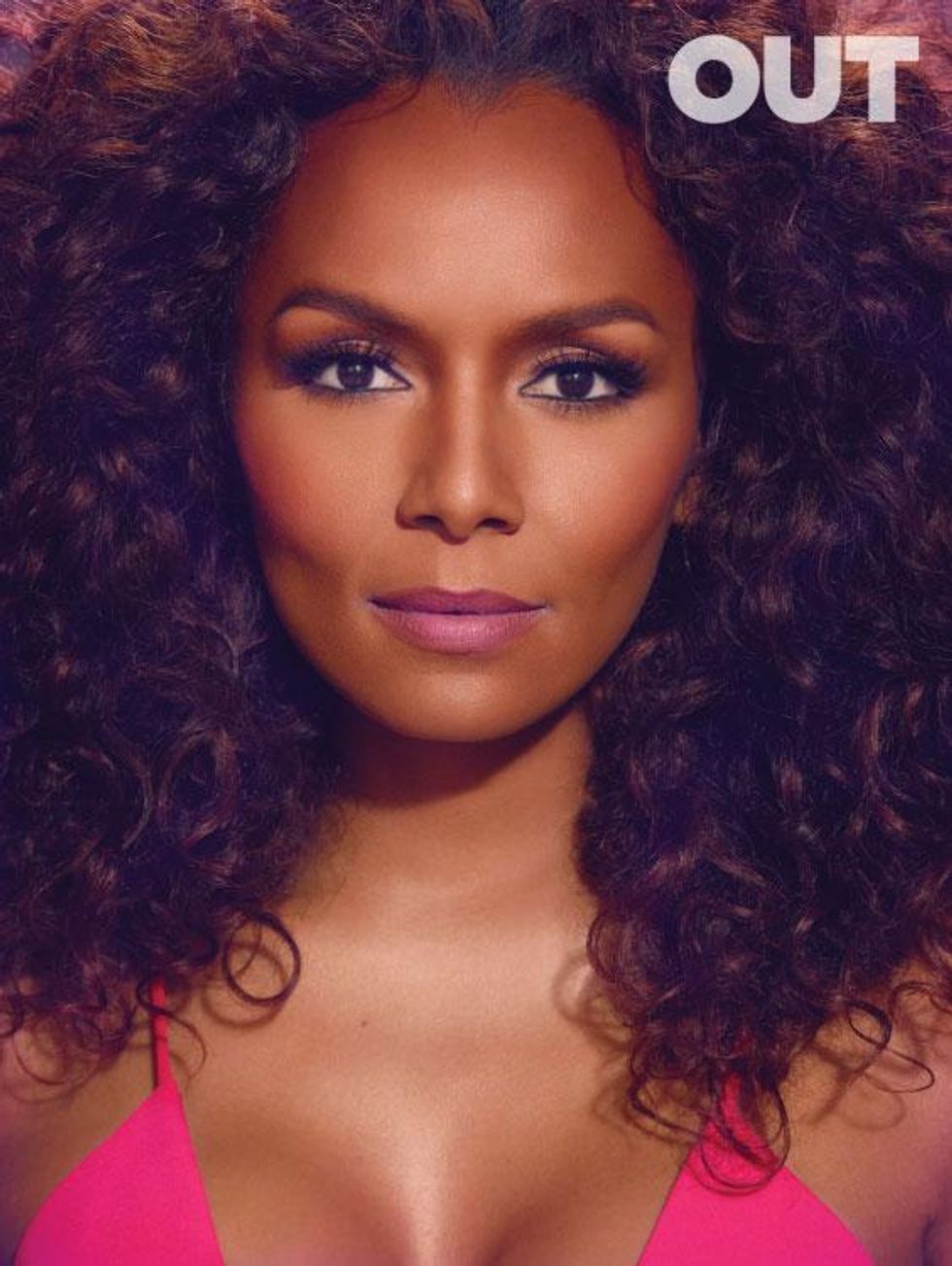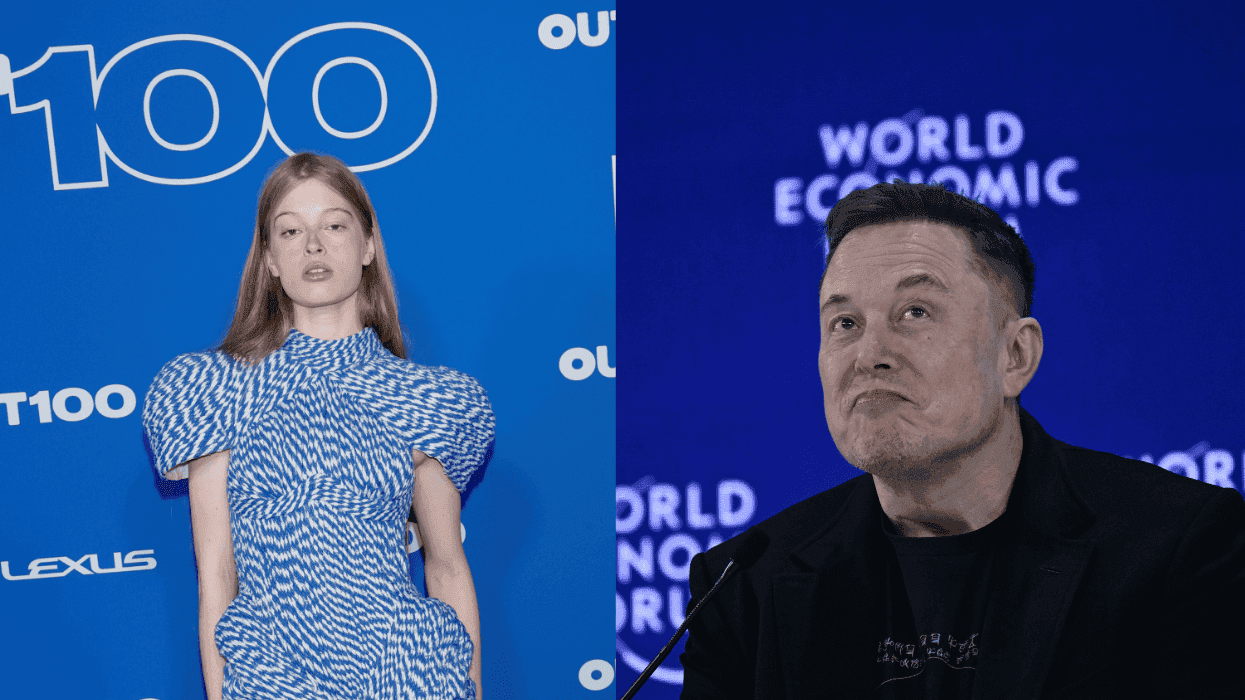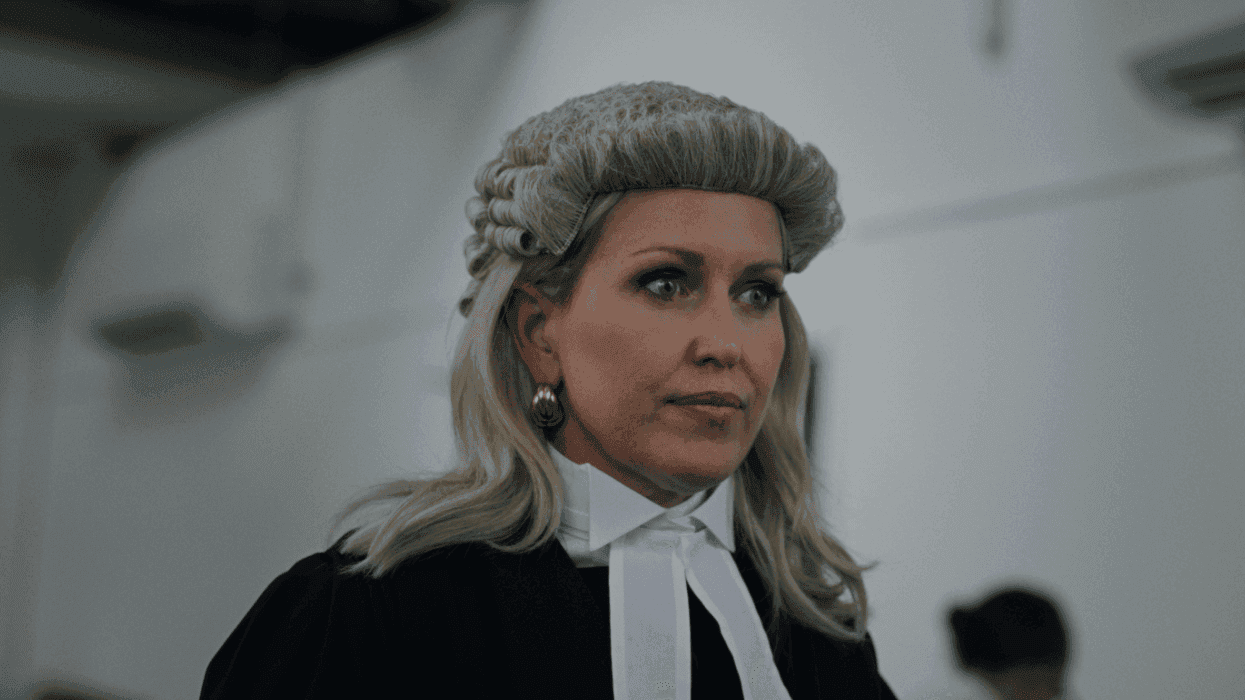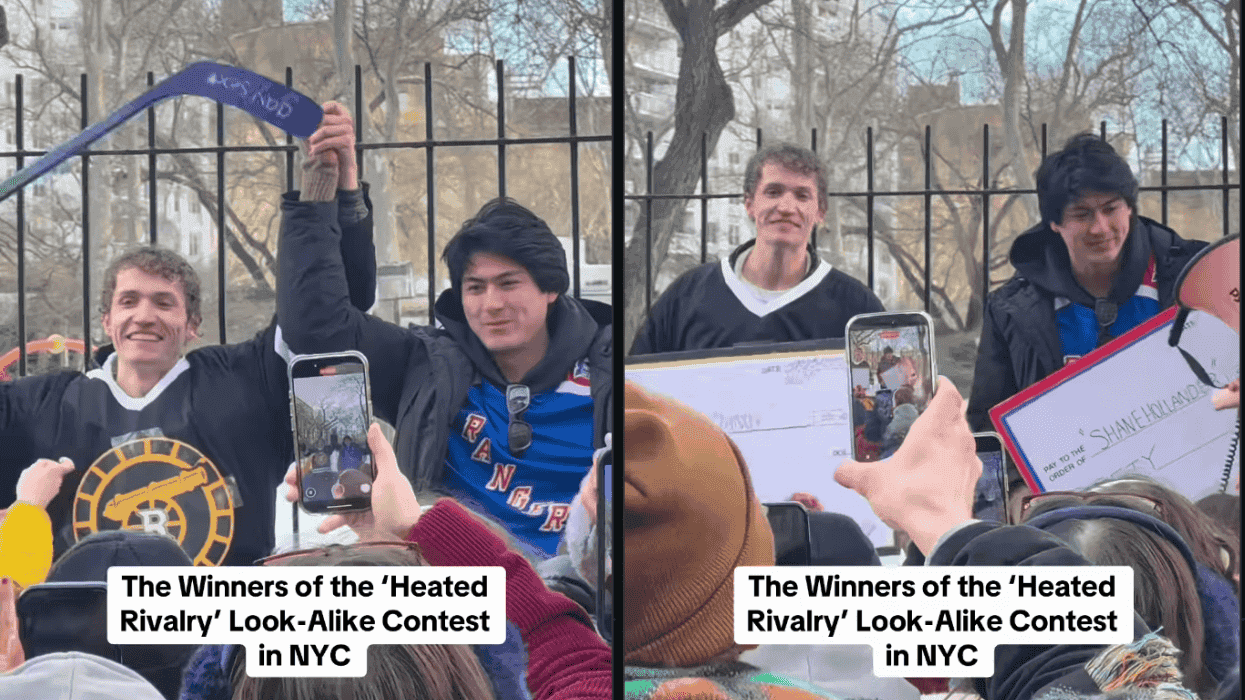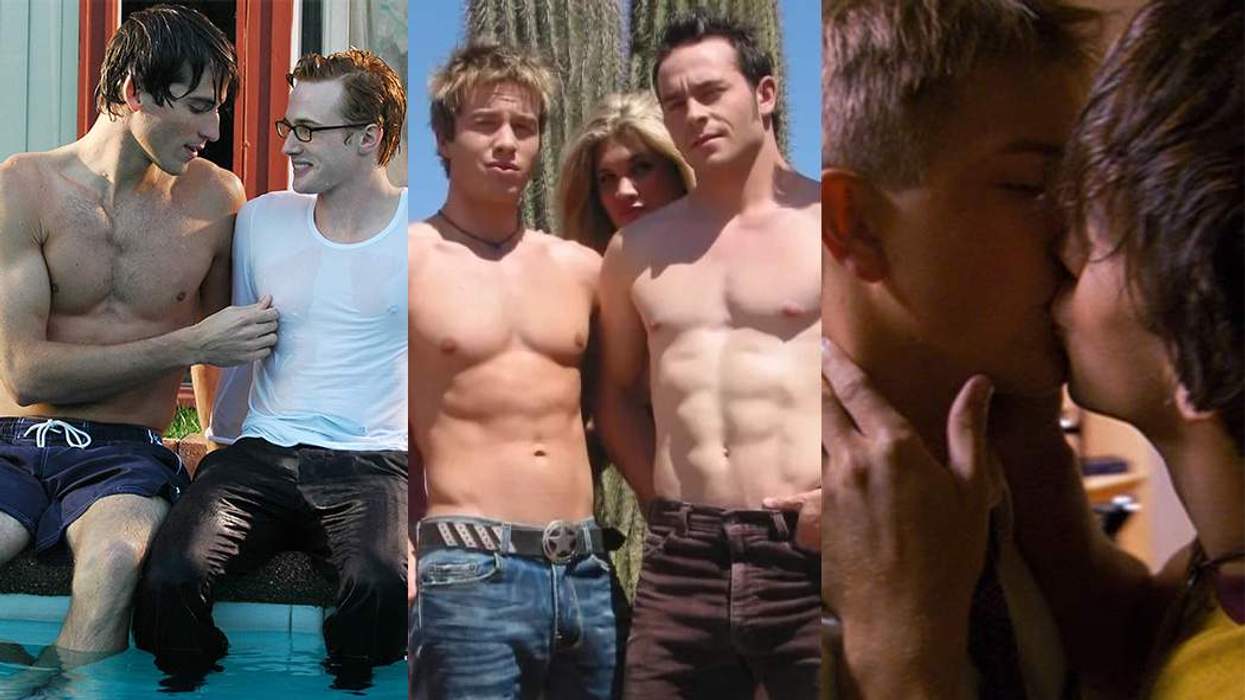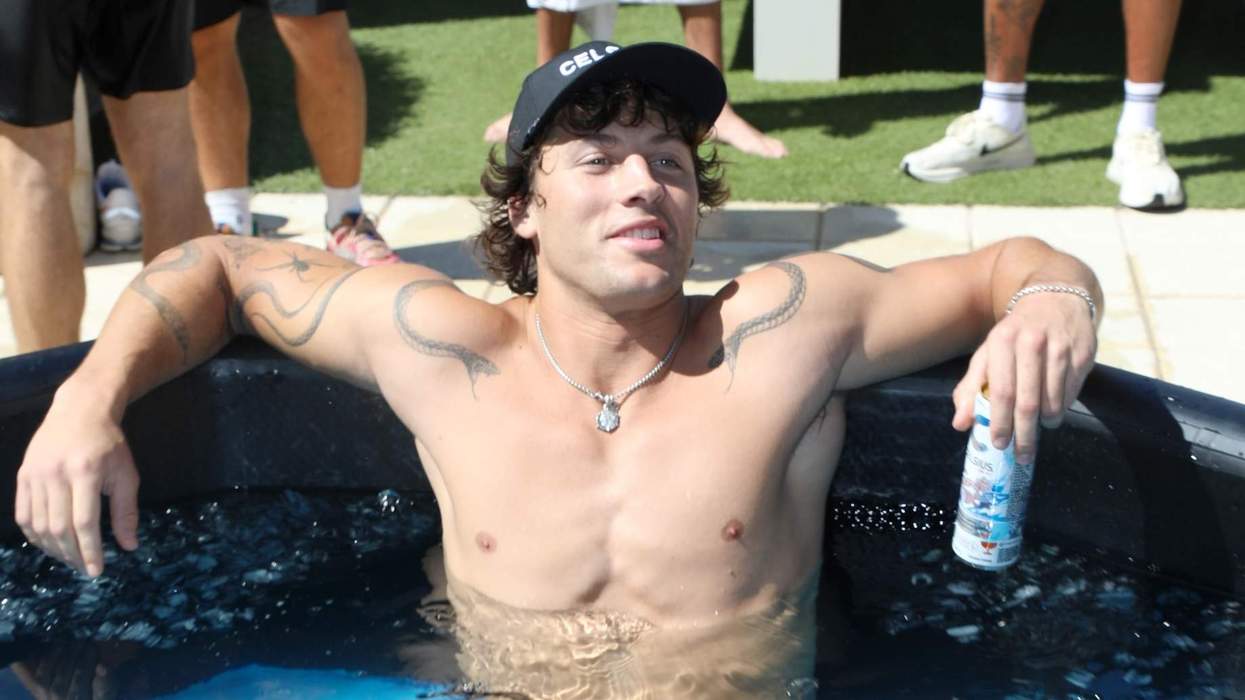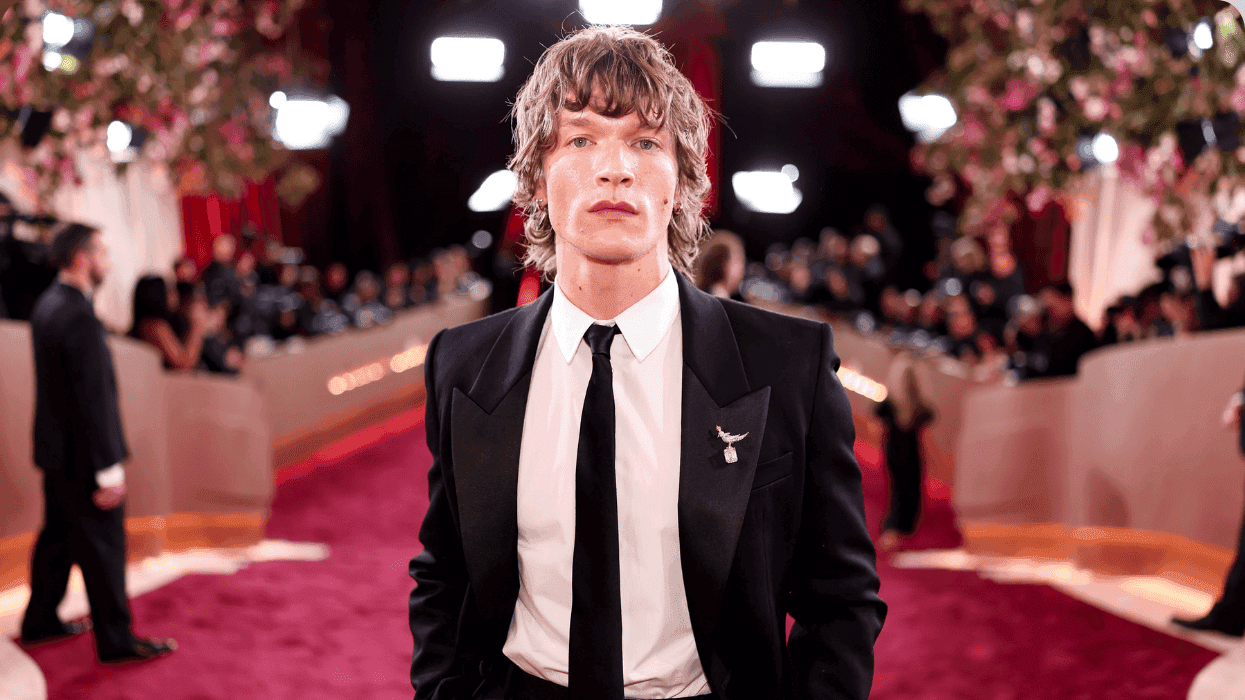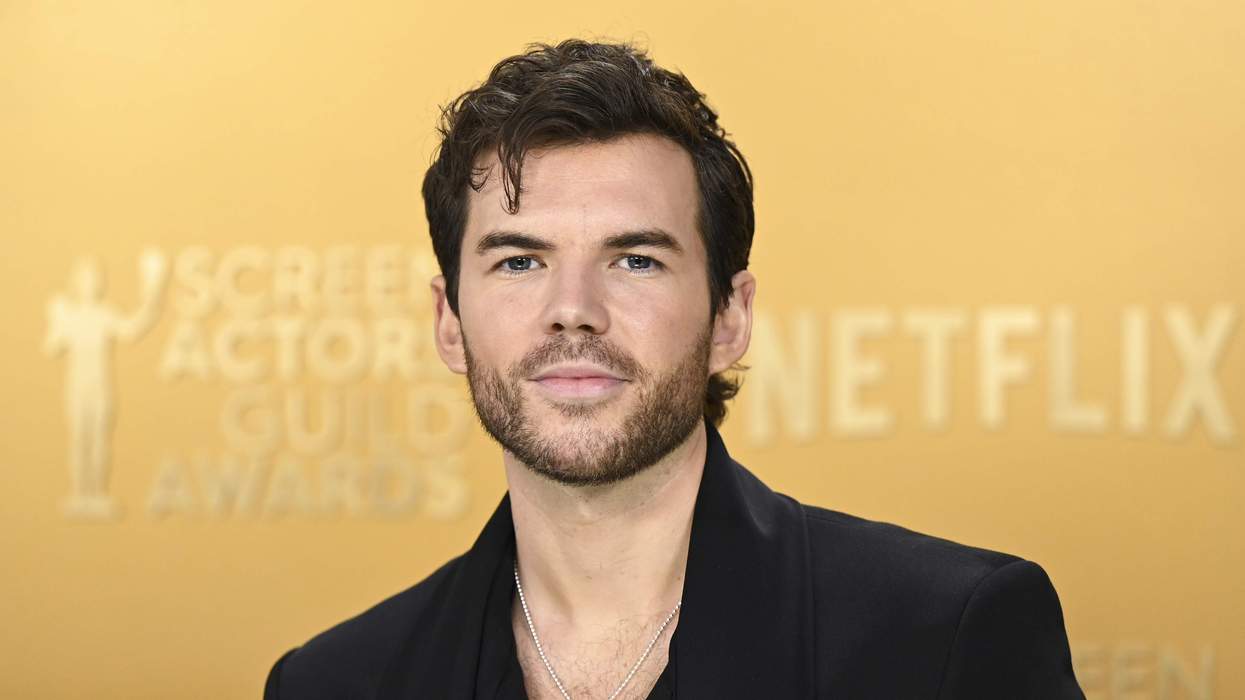Janet Mock and Ellen Page have a lot in common. For starters, they're both woke women who use their platforms to shed a powerful beam of light on issues affecting the LGBTQ communities -- whether it's Mock's advocacy for trans women's rights or producing the HBO documentary The Trans List, or Page's queer travel series Gaycation on Viceland, or projects near and dear to her heart, like the movie Freeheld with Julianne Moore. They also know what it's like to be on the business end of a media frenzy over comments made to and about them by zealous conservatives. Here, Mock and Page discuss self-actualization, the challenges of being in the media, and tackling those tough viral moments.
Ellen Page: I finished your book Surpassing Certainty this morning. I feel so, so lucky to have spent the last few days with it. You write in this way that is so generous, in terms of what you share and how vulnerable you are with your audience and how much you give of your story and your life. I just feel such warmth and humor and kindness, even in the way you write about people that didn't fully understand what you were going through or your identity. I just thought it was a really beautiful story about you really discovering who you are in New York and getting to live this dream that you worked really hard for.
Janet Mock: I feel that I had such a unique experience. I was able to live my truth as a young person, to be out as a young gender-nonconforming, then trans, kid. I transitioned through middle school and high school, [so I had] that experience of being bold in my identity. Then I had this next chapter of my life where I was able to put my gender-identity stuff behind me and just be another 21-year-old going into the world and figuring out what I want to do with my life. I moved away from home, found my first love, found my first pleasurable sex experiences, found my first internship and job -- all those universally young-people things -- but my gender identity and my trans self were not necessarily leading the way. I know that being able to "pass" was this huge privilege that had enabled me to not have my trans-ness and my womanhood checked in every space. I know that's unique for a lot of folks. But it is a story that I know so well because when I did decide to step forward and tell my story for the first time publicly in 2011, I got lots of emails from women who told me that they still never found the space to be out, that they would never, ever reveal that they were trans.
They were taught, as I was taught, to move on with your life after you transition and just leave your "becoming" behind you. And I struggled for a long time, for many years, as a young professional, physically working in mainstream media as an editor at People. I was scared that if I came out, I would only ever be able to tell trans stories. And a part of that is kind of true because we don't allow marginalized folk -- whether they're queer or LGBT, or folk of color -- to tell any stories other than their personal ones. We don't allow them to tell all kinds of stories, to lend that same sense of other-ness to other kinds of stories that they want to tell. I don't know if you have had this certain kind of fear yourself. You know, like, you won't be able to be the romantic lead in a blockbuster -- that [we cannot get past the fact of] your being honest and truthful about who you are.
EP: Well, I think that's kind of in subtle ways and not-so-subtle ways what you're told: You can't come out. I was wearing dresses and heels and all these things that I'm not comfortable in. How absurd to think that, Oh, you're not gay because you're wearing dresses and heels. But that's what it comes down to. Of course I have that fear. I look back now and I almost feel shame for having that fear. I definitely wish I'd come out sooner, but you're sort of constantly surrounded by that fear.
JM: I think there's this great unlearning. You have to unlearn all the limitations that have been put on you. I was told that I would only be able to have a fraction of an audience if I came out, if I embraced all the specificities of my identity and my experiences. And what I've actually found is that I've been able to tap into so many different audiences because of my experiences and how they speak to people who may still feel othered in different ways.
One thing that I wanted to talk you about was viral moment-ness, because I have been attacked in one small controversial moment that has been seen by so many people and then you instantly are asked about that moment. I'm thinking about the night my first book, Redefining Realness, came out, with Piers Morgan on CNN. I've been constantly asked about this moment that was supposedly a conversation, but to me, it really wasn't a conversation. And I wonder how you felt about your moment [when you spoke to] Ted Cruz and if you felt that you both were even hearing each other. A part of me thinks maybe I'm just projecting my own stuff from my moment, but I felt I was not being heard. It wasn't really a conversation because there was no openness on the other end for a conversation to even be had. How did you feel in that moment with Cruz, and how do you feel now after it? What was your takeaway?
EP: To be honest, it felt like a blur. [On Gaycation] we were really hoping to talk to someone running for the GOP candidate for president, and we were mindful that it probably wouldn't be possible. That was the situation where there was an opportunity, and I felt like it was the only opportunity. For me, it was actually really similar to most conversations we have on the show -- the same dynamic -- where you're trying to interact with someone, you're trying to get them to hear you, and there's just an inability. I have found when we interview certain people for the show who are very much anti-LGBT, there just doesn't seem to be an openness to really want to listen. So I think it was an opportunity to talk to someone who was infamously anti-LGBT and for some reason dedicates a lot of time [to that] in their political career. I guess how I feel about it now is: We tried. I wanted to just try to engage and even have a bit of a conversation or bring some connection to it. But, yeah, I just feel like there's a dismissiveness and an unwillingness to actually answer the question. I think about what it means for people's lives -- it's probably easier to just avoid it, you know?
JM: My other layer of it was just your -- I hate saying "grace" -- but your grace. Hearing him talk about religious liberty....
EP: It's always been used -- religion has been used to be a part of extraordinary movements and offer love and support -- but as we know, whether it was killing indigenous people, or the treatment of black people, or the treatment of women, there's always been the same excuse: that there's some sort of weird religious backing to it, which is absurd and really harmful. And now with Mike Pence graduating from governor of Indiana to the vice presidency, there's a lot to be extremely concerned about.
JM: Does this new administration change the way you tell a story? How does that shift things for you as a producer and a storyteller?
EP: We've been working on a special about the election that we shot in D.C., and we went to Indiana because Ian [Daniel, Page's cohost] is from a small town in Indiana and so, of course, is Mike Pence. That should be coming out soon, so, yeah -- I feel like the focus has shifted. It can be joyous, it can be fun, it can be those stories, too, but the political environment is shifting, and we're thinking of maybe expanding the show from just being travel-based to exploring LGBT issues in a more micro and nuanced way.
JM: I think there is also a big gap in the world because we get to curate it online. I get to see and hear from people who are like-minded, like me and you, but then I also wonder how much of our duty it is to go beyond that, to be involved in conversations that are uncomfortable, that are courageous, and that evolve us, helping generate, not just tolerance, but empathy.
EP: A sense of empathy or even just a sense of visibility. You know, just any form of acknowledgement. How do you think we do that?
JM: I feel challenged -- as someone who works in media, who studied media, who is a journalist -- by this sense of: I could write this story or this op-ed, but there's a whole segment of the world that I believe needs to read this story that never will because we don't overlap in any way. They don't read the things that I read. They don't follow the folks that I follow. I love that we are able to talk to people who are "like-minded," but I wonder, where is the opportunity to talk to people who are not? Whose work is it to build that bridge? In my mind I'm always thinking it's white folks' job to go and get those people.
I can guarantee you that my book is not going to be on the front bookshelves at the Barnes & Noble in the South, in these rural places. They're going to choose not to carry my book because they're going to say this black trans girl's book is not going to resonate with our audience -- [who won't] even have the chance to walk across the shelf and see it. Yes, the material exists, the story exists, the show exists, but certain people will never have access to it.
EP: And that's the reality. There's probably a school somewhere that would [erupt in] a huge uproar if they even carried LGBT books. And that takes me back to Surpassing Certainty. You talk a lot about your challenges being in New York as a young black woman -- prior to discussing your trans-ness, other than with people very close to you -- and engaging with other women of color who had different challenges, experiencing that for the first time, and being open to it, then hearing and responding to that need. And I'm wondering, what is that work like? For people that are allies and want to know how to help -- what are the sort of things that people can do?
JM: I mean, I was not always here. I wasn't always intentional about going in and educating myself. That's the number one thing for someone who wants to be a partner or an ally or comrade in the struggle for our liberation: Go and educate yourself. When I first stepped forward with my story, I wasn't politicized that way. All I felt was a personal yearning to tell my story. Then I felt another yearning to tell it so that a young kid who's going through what I went through could now have access to another mirror. That's all I was thinking. And then as soon as I came forth, people were like, "She's an activist, and she's fighting on behalf of trans folk." I told one story, which was my story. But now I have a lot of things I need to catch up on. I have to become a partner in my own movement. For me it was this great learning. None of us came to it just intuitively knowing all these things that we know now, and I can just imagine in 2014 when you [came out] that you were secretly studying before you stepped forward.
EP: I had a similar experience, for sure. And I'm grateful to all of the people and books I've learned from. It ends up going off in so many different directions just because so many of these issues are interconnected. Sometimes I do feel sad and overwhelmed because I'm like, Why are we not learning this in schools? Why aren't we learning more about LGBT history? Why aren't we having these conversations and learning more in depth? I feel like that would do a tremendous amount for even just bullying in schools. Learning about LGBT people and queer people and this spectrum of identity at a much younger age would remove the stigma that I think people feel.
JM: Completely. That's why it's so important that folks who are underrepresented and marginalized become voices for so many things. What's so great about this new generation, the generation that we are part of, is this sense that your education does not stop at 3 o'clock. You're always on that phone, you're on YouTube, you have access to different kinds of personalities and people and folks who are creating their own stuff. There are a lot of queer and trans stars out there that have millions of followers, and they're talking about their journeys, their lives, and that's encouraging to me. I felt isolation growing up, and you possibly felt it too, but now folks out there have access to different kinds of stories.
Thinking about your film with Julianne Moore, Freeheld [based on the story of Laurel Hester and the fight against the Ocean County, New Jersey, Board of Chosen Freeholders], I wonder about the distance between your lived reality and your art: To have those two things overlap in one film must have been incredibly affirming or fulfilling.
EP: It's so hard for me to speak of it in that way. Laurel was sick, and that fight came out of her sickness. Knowing that her wife Stacie, that she lost this great, great love of her life, it's hard for me to speak in those terms. But first and foremost, I just felt so grateful to be a part of telling their story. There was a time when being out just felt impossible -- I would use that word. I have been inspired by people like Stacie and Laurel -- their story was a big part of my life. I think that came up when I was maybe 21 and I was very closeted. I remember watching the short documentary that the film is based on and just being moved to tears. It was such a beautiful experience to be there, to be out, to be playing that character, to be telling a story that moved me so greatly and inspired me -- and to be doing that with a woman that I looked up to and admired so much. I guess my big takeaway is that it's people like Stacie and Laurel that have allowed me to have the life that I have and allowed me to be out and doing the job that I have. I'm so grateful for that experience, for being a part of the inspiration. It doesn't feel impossible anymore.
JM: Those are the daily lived histories, right? All these thousands and millions of stories of people living and fighting and struggling. You were able to help make this film happen, and now it's here and some other young person will at least feel a sense of knowing them. Just thinking about the power that storytelling has, it allows you to see someone else's journey and no longer feel alone in your own journey.
EP: I remember randomly stumbling on But I'm a Cheerleader when I was 14. It was hard to find, and I remember not being totally aware of why it spoke so much to me. But moments of "I feel that way" and "I don't really like when boys..." -- those little moments can mean so much. I guess I'm interested to know, is there any other work you want to do? Do you think you could see yourself doing fiction or writing a screenplay?
JM: I am working on a script for a pilot right now, and it kind of deals with my strength in my 20s: the leaving and going away and finding my own place in the world as a young trans woman who's not necessarily out but not hiding anything either, and what that struggle is. We have this sense of "Come out, come out, wherever you are," without really knowing that coming out is different and that struggle is different based on your status in our society. I'm also really, really passionate about making a multi-part doc series on Hawaii, and I would love to write a children's book like A Closer Look.
EP: I guess I'm also taking a moment to figure out the answer to that question. I'm thinking about what we can do with the show. There are certain things I want to go deeper with and expand. And then I have a film that's in post right now that I did with Kate [Mara]. It's a love story between us, and we can produce it together. It's exciting when you're an actress and your friends are the same age as you and are also open and you get to work together. A lot of my focus is on Gaycation and other nonfiction work that I could potentially make and not be in front of the camera for. I'm in the moment -- I don't know what is going to happen next.
JM: It's nice to be in a moment of pause and reflection and not constantly feeling the urge to produce. We need time to just reflect and feel and wonder and wander a little bit.
EP: I tried to sort it out, but really, I just want to get out and tell more LGBT stories. I think that's where my heart is.
Photography: Jill Greenberg
(Ellen Page) Styling: Alison Brooks at Exclusive Artists, Hair: John D at Forward Artists, Makeup: Toby Fleischman
(Janet Mock) Styling: Michael Cook, Hair: Chuck Amos at Jump Management, Makeup: Wendi Miyake
Like what you see here? Subscribe and be the first to receive the latest issue of Out. Subscribe to print here and receive a complimentary digital subscription.


